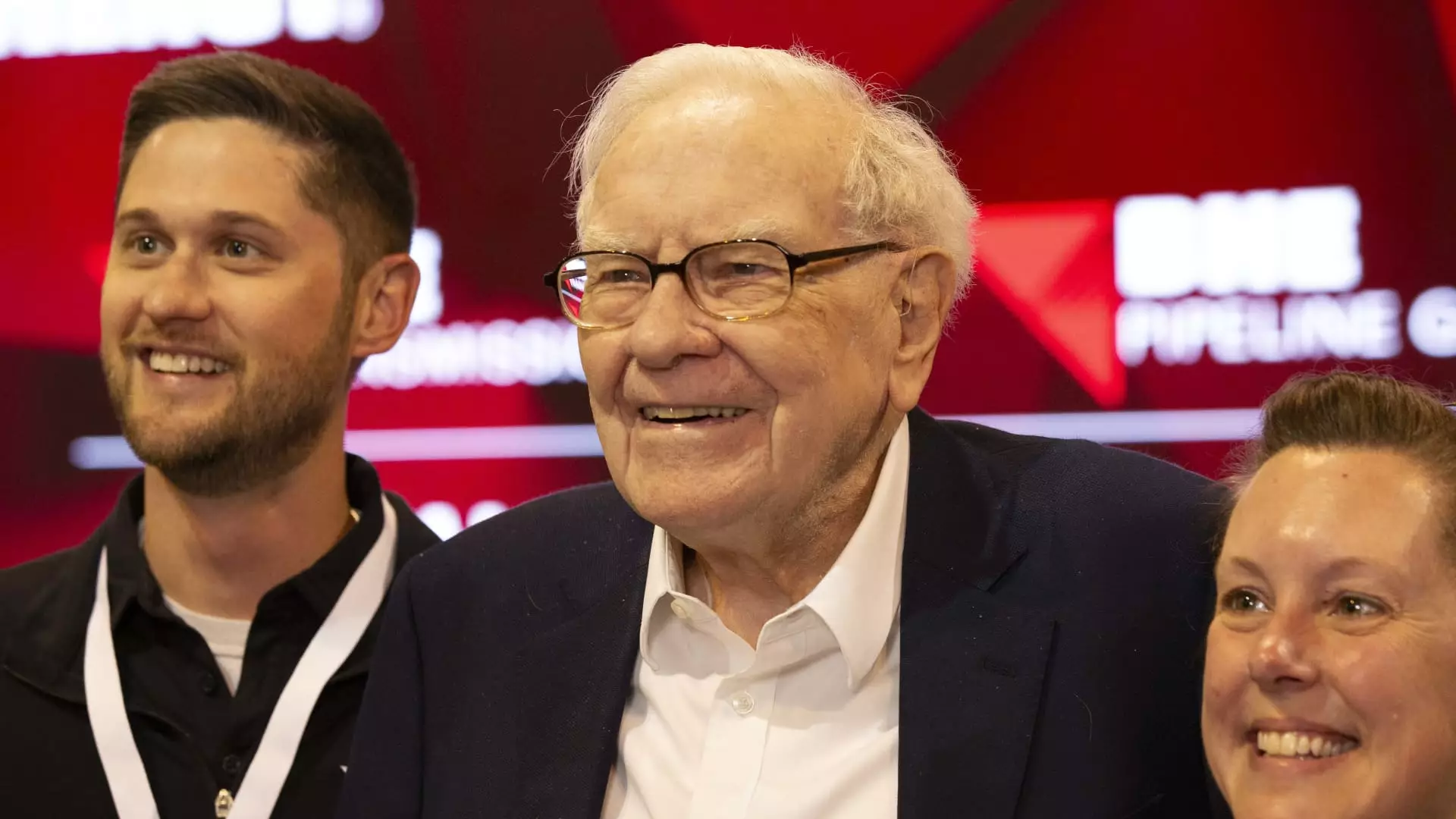Warren Buffett, the legendary CEO of Berkshire Hathaway, is poised to address shareholders and fans alike, amidst a tumultuous backdrop of market events ranging from escalating trade wars to the devastating impacts of climate-related disasters. As he prepares to unveil his highly anticipated annual letter on Saturday at 8 a.m. ET, alongside Berkshire’s fourth-quarter earnings report, investors and analysts are eager for his insights. Buffett’s perspectives on the current market dynamics, especially the implications of President Trump’s tariffs and the ongoing California wildfires, are particularly anticipated this year.
One of the pressing issues that Buffett will need to address is the fallout from the recent wildfires in California, which have been characterized as potentially the most devastating in U.S. history. While Berkshire Hathaway does not have a significant footprint in the California insurance market, its extensive reinsurance operations will undoubtedly feel the impact. Analyst James Shanahan from Edward Jones speculates losses could exceed $40 billion, with Berkshire’s exposure manageable yet significant. Projections suggest that Berkshire Reinsurance could incur around $1 billion in insured losses, with an additional $150 million loss expected for its primary insurance business, which includes a broad range of commercial coverage.
Furthermore, investors are scrutinizing the forthcoming earnings report for precise disclosures related to the California wildfires, particularly any claims that may arise for Geico, a primary player in the auto insurance sector. Industry analysts, however, are keen to reassure stakeholders that these claims, while considerable, will remain within manageable limits for the company.
In addition to natural disasters, Buffett is expected to offer commentary on the broader economic effects of President Trump’s tariff policies. With recent tariffs of 25% imposed on goods from Mexico and Canada, along with a 10% levy on Chinese imports, these aggressive trade actions have raised fears of inflationary pressures and a potential backlash on consumers. Buffett has historically characterized tariffs as a burden for consumers, pointing out their long-term implications for global economic health.
Investors will undoubtedly seek further insights into how these tariffs are impacting Berkshire’s extensive portfolio, particularly how businesses in materials and construction are navigating disruptions in supply chains, such as the challenges in importing lumber from Canada. Buffett’s views could provide clarity on whether these trade policies will enhance or hinder Berkshire Hathaway’s diverse operations going forward.
Amidst the chaos in the market, Buffett’s apparent strategic pivot towards liquidity has raised eyebrows. Recent reports indicate that Berkshire Hathaway has continued its stock-selling trend, having offloaded additional shares of Bank of America, leading its stake to fall beneath an essential threshold of 700 million shares. This sell-off is part of a broader trend where sales have consistently outpaced purchases over the past nine quarters. As a result, Berkshire’s cash reserves have swelled to an unprecedented level, surpassing the $300 billion mark by the third quarter.
Analysts like Shanahan suggest that Buffett’s growing cash pile signals a cautious stance towards the current equity valuations, implying that he perceives the market, and even his own company’s stock, as expensive. This behavior raises significant questions for investors—will Buffett’s frugality give way to opportunities when market conditions shift, or is there a more profound strategy at play?
In addition to addressing current business challenges and market conditions, Buffett is also meticulously preparing Berkshire Hathaway for a seamless transition of leadership. Over the last year, significant actions have been taken to resolve outstanding legal matters and secure full ownership of key assets, such as Berkshire’s utility unit, Berkshire Hathaway Energy. Furthermore, the acquisition of Pilot Travel Centers, wherein Berkshire bought out the remaining 20% ownership from the Haslam family, signals an aggressive plan to consolidate and strengthen its holdings.
As Buffett continues to lay the groundwork for a promising transition to his successor, Greg Abel, the market will be keenly observing these maneuvers. Such preparations may provide assurance to shareholders about the longevity and resilience of the company’s leadership, even as it navigates its ever-evolving landscape.
As Warren Buffett prepares to unveil his thoughts and strategies amid a storm of challenges, shareholders and analysts remain poised for insights that could shape the future of Berkshire Hathaway. Buffett’s reflections on pressing issues such as wildfires, tariffs, and succession plan will undoubtedly set the stage for how stakeholders will respond moving into the new fiscal year.


Leave a Reply